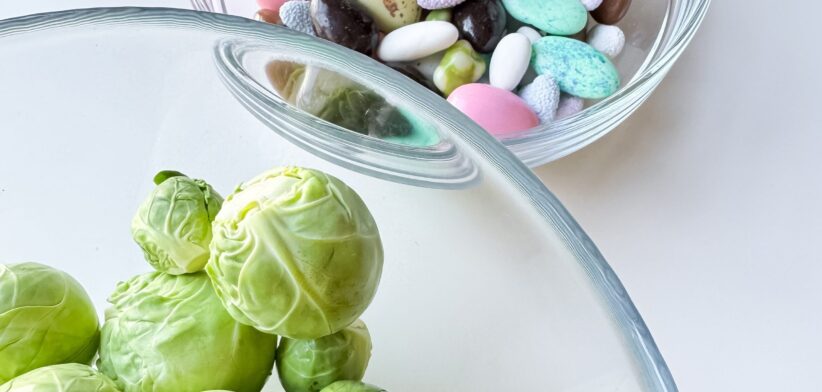Chocolate made from brussels sprouts is one of the innovative ways the horticulture industry is looking to tackle food waste.
Featured at a recent industry event, the sweet treat created from the much-maligned green was developed by industry body Hort Innovation.
Research and Development General Manager Anthony Kachenko said the product was an example of what could be made from discarded fresh produce.
Dr Kachenko said such processes could encourage consumers to eat more fruits, vegetables and nuts while also reducing food waste.
“Research shows that 96 percent of the population do not eat the recommended amount of five to six serves of vegetables each day, and less than one per cent of hard vegetables, such as brussels sprouts, are consumed as desserts – maybe this is an untapped market,” Dr Kachenko said.
Brussels sprouts grower Caitlin Radford said the chocolate initiative as a creative way to reduce waste and generate additional income for growers.
“There is so much potential for what we typically consider ‘waste’,” Ms Radford said.
“Our primary goal as producers is to deliver high-quality produce. Innovations in alternative food products can help minimise waste by utilising excess or lower-grade produce.”
End Food Waste Australia Chief Executive Officer Steven Lapidge said it was encouraging to see more innovation in the food waste space.
“Fruits and vegetables are Australia’s most wasted foods. More than three million tonnes of fruit and vegetables go to waste every year in Australia – enough to fill the Melbourne Cricket Ground to the brim five times,” Dr Lapidge said.
Despite this diversion of brussels sprout into the chocolate-making process, Dr Kachenko said the sprout, as a food staple, was undergoing a renaissance.
He said in 2022/23 the production value of the sprout jumped by 53 percent to $42.1 million.
“As the fastest-growing vegetable in 2022/23 in terms of value, there is no denying the humble brussels sprout is making a comeback,” he said.
“Our data shows that per capita consumption of brussels sprouts jumped 46 percent in the past year.”








